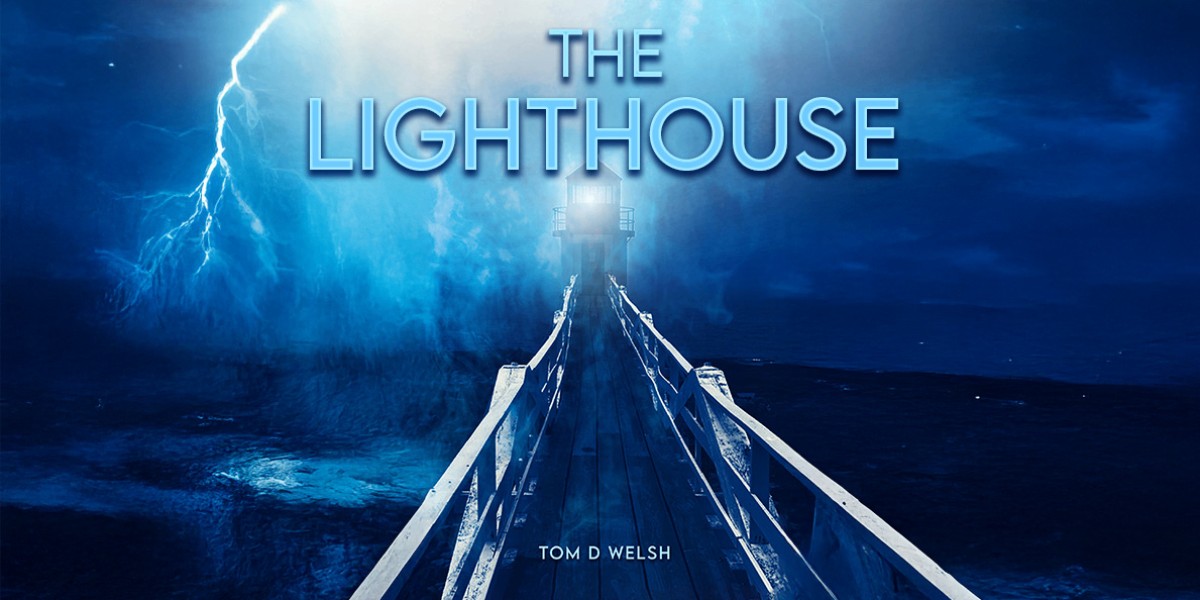How Grief, Memory, and Nature Shape a Life’s Journey: A Reflection on Tom D. Welsh’s The Lighthouse
By: Richard R. Morrison
In The Lighthouse, Tom D. Welsh delivers a lyrical and evocative narrative that resonates with the constant rhythms of the sea—a force that is both unpredictable and symbolic, often guiding and unsettling. Through his careful prose, Welsh reveals how nature’s unpredictable power mirrors the complex emotional landscape of grief and the human search for meaning.
At the heart of the novel is Henry Strong, a man shaped by the tragic loss of his parents in a violent storm off the coast of Maine. His life, marked by grief and solitude, unfolds as a profound exploration of memory, healing, and the introspective power of nature. His story is one of transformation, where internal and external forces work together to forge a new understanding of self.
A Sea of Emotion
The ocean plays a pivotal role in Henry’s story—not simply as a backdrop, but as a living, breathing force. It crashes through his childhood, claims his family, and remains ever-present in his thoughts as he searches for meaning in the aftermath. In Welsh’s portrayal, the waves are more than just water—they serve as carriers of memory, reflections of fate, and echoes of unresolved sorrow.
When Henry is adrift, the sea is tumultuous. As he begins to heal, the waters become calmer. And through the storm stands a lighthouse—emitting a mysterious blue light, steadfast amidst the chaos. It symbolizes hope, clarity, and the search for peace in the face of profound loss. This light acts as both a literal and metaphorical guide through the turbulence of his life.
Memory as Compass
Henry’s inner world is steeped in memories. The roar of the ocean, the scent of salt air, and the final night with his parents recur in his mind like familiar tidal patterns. Yet among these recurring shadows, there are also moments of light—books, poetry, and quiet conversations—fragments of beauty that gradually help him reconnect with life.
Through these flickers of solace, Henry begins not just to endure, but to understand his past and imagine a future that is no longer dominated by it. Over time, the weight of grief becomes less oppressive, replaced by an acceptance that allows him to move forward.
Nature as Witness and Teacher
The natural world in The Lighthouse is not merely a setting—it emerges as a significant presence. From the rustling of sea grass to the intensity of hurricane winds, nature mirrors Henry’s transformation. The sea, the wind, and the shifting light act as instructors, encouraging both Henry and the reader to pause, reflect, and feel deeply. These elements offer the kind of wisdom that cannot be found in the written word but rather through lived experience and intimate connection with the world around us.
A Novel for the Soul
With poetic prose and deep emotional insight, Tom D. Welsh has crafted a novel that speaks to anyone who has grappled with loss, searched for meaning, or sought calm after the turbulence of grief. The Lighthouse may not offer immediate answers, but it provides a path through sorrow, leading toward connection, clarity, and eventual peace. The journey it outlines is not simple, but it is deeply rewarding for those willing to explore it.
Let the waves carry you into a story of reflection, memory, and hope. Consider picking up your copy of The Lighthouse by Tom D. Welsh today and begin your own journey.



